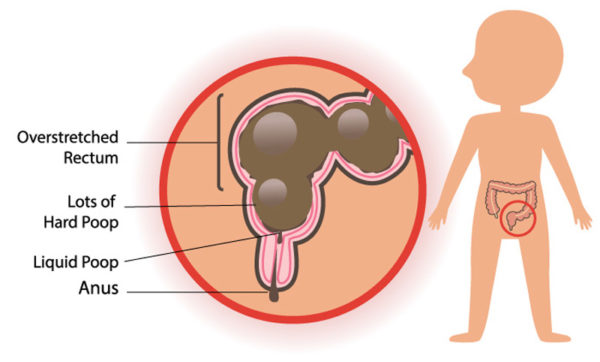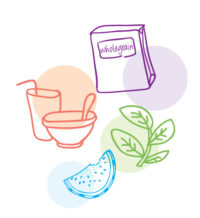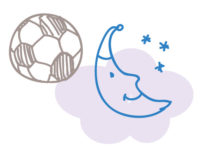Faecal incontinence or soiling (also called encopresis), is the involuntary repeated passing of stool into clothing. It occurs among toilet-trained children aged 4 years and above.
Encopresis is related to continued constipation which clogs the rectum. Newer stool is more liquid and can leak past the weakened, over-stretched rectum and stain the child’s clothing.
Signs & symptoms
- Evidence of stool or liquid stool on underwear/clothing
- Constipation with dry/hard and pellet-type stool
- Large stools that are difficult to flush down the toilet
- Child avoids bowel movements
- Long periods of time between bowel movements
- Lack of appetite
- Abdominal pain
- Bedwetting (enuresis)
- Frequent bladder infections (particularly in girls)
Preventing the problem
A well-balanced diet high in fibre and water is a good way to prevent encopresis. Preand probiotics are potentially helpful. Prebiotics are dietary fibres found in fruits, vegetables, whole grains and legumes. Probiotics help replenish the ‘good’ bacteria in the gut, which are beneficial to digestive health and overall wellbeing. Fermented food products are rich in probiotics, e.g. cultured milk drinks, tempeh, kimchi, home-made yoghurt (tairu), and tapai pulut.
Research has also demonstrated that probiotics can help increase stool movement and prevent constipation. Other basic healthy lifestyle factors include getting enough sleep and exercise, drinking enough water, managing stress levels, and eating healthily. Making changes to your lifestyle will need some work but the results are worth it.
If dietary changes are not helping, there are other possible causes of continued constipation, such as:
- Tension/anxiety triggered by problems during toilet training
- A low fibre diet that leads to constipation
- Drinking insufficient water
- Inactive lifestyle (e.g. insufficient physical activity)
- Fear/anxiety/dislike of using toilets outside the house (e.g. at daycare or school)
- Ignoring the urge to have bowel movements
- Fear of defaecation (a constipated child may experience a painful injury to his rectum, thus leading to a fear of bowel movements because of the pain)
When to see a doctor
Check with your child’s paediatrician if he:
- Is older than four and consistently soils his pants
- Resumes soiling his pants after being ‘clean’ for months or years
- Frequently has constipation (even without encopresis)
In rarer cases, some neurological or developmental disorders of the digestive tract may also cause encopresis.
Before seeing a doctor, take note of unusual stresses, diet, water intake, physical activity, and bowel movements for the past few weeks. The cycle of constipation and encopresis can be broken only by clearing the clogged stool from the bowel and ensuring that your child adheres to regular bowel movements. This allows his bowel to return to its normal size, which may take weeks or months.
To achieve this, his doctor may prescribe medication (laxatives), enemas, or rectal suppositories. Avoid using these methods (especially on a frequent basis) on your own unless prescribed by the doctor. After your child’s bowels have been cleared, motivate him to adhere to regular bowel movements. Check with the doctor to see if the child needs a stool softener (e.g. lactulose and mineral oil) to help with bowel movements.










Comments